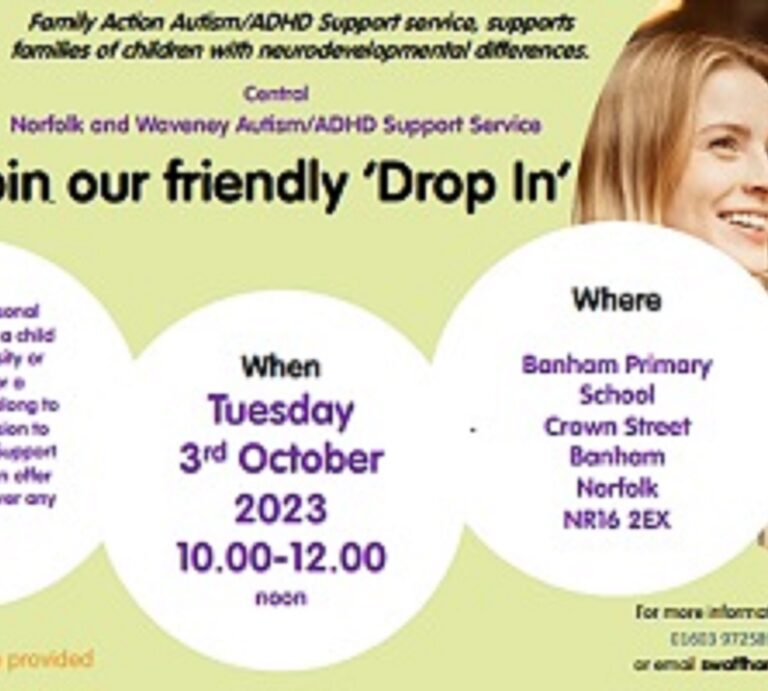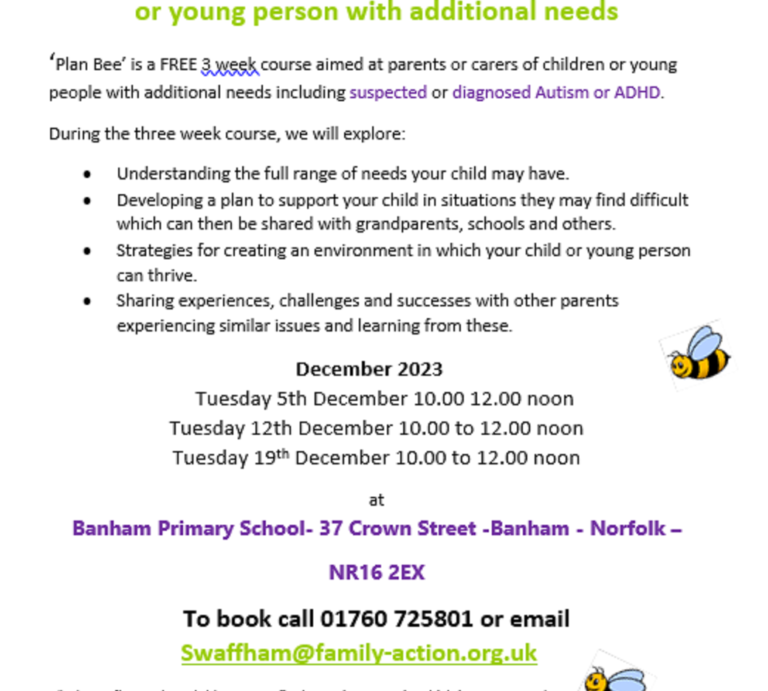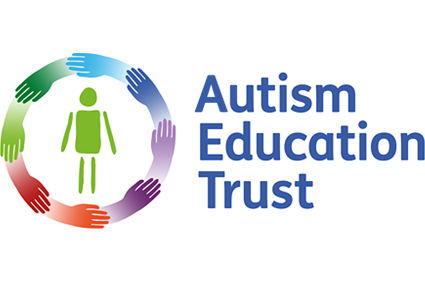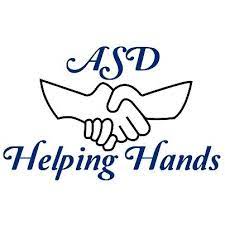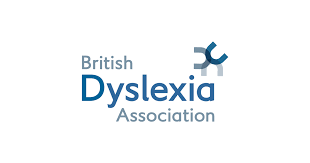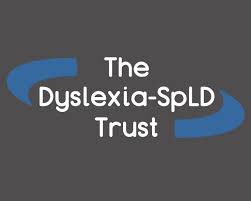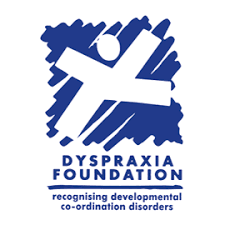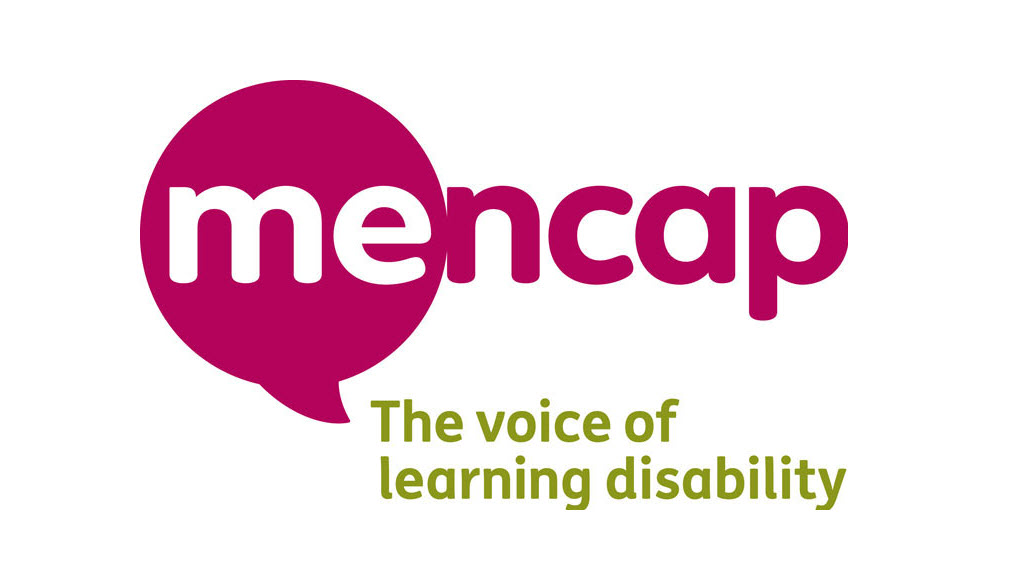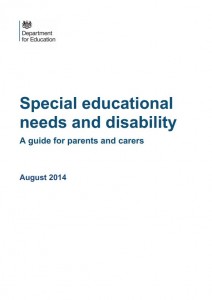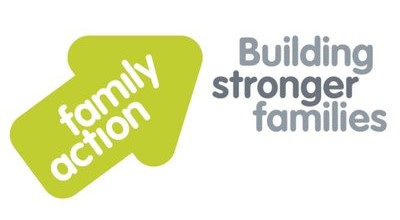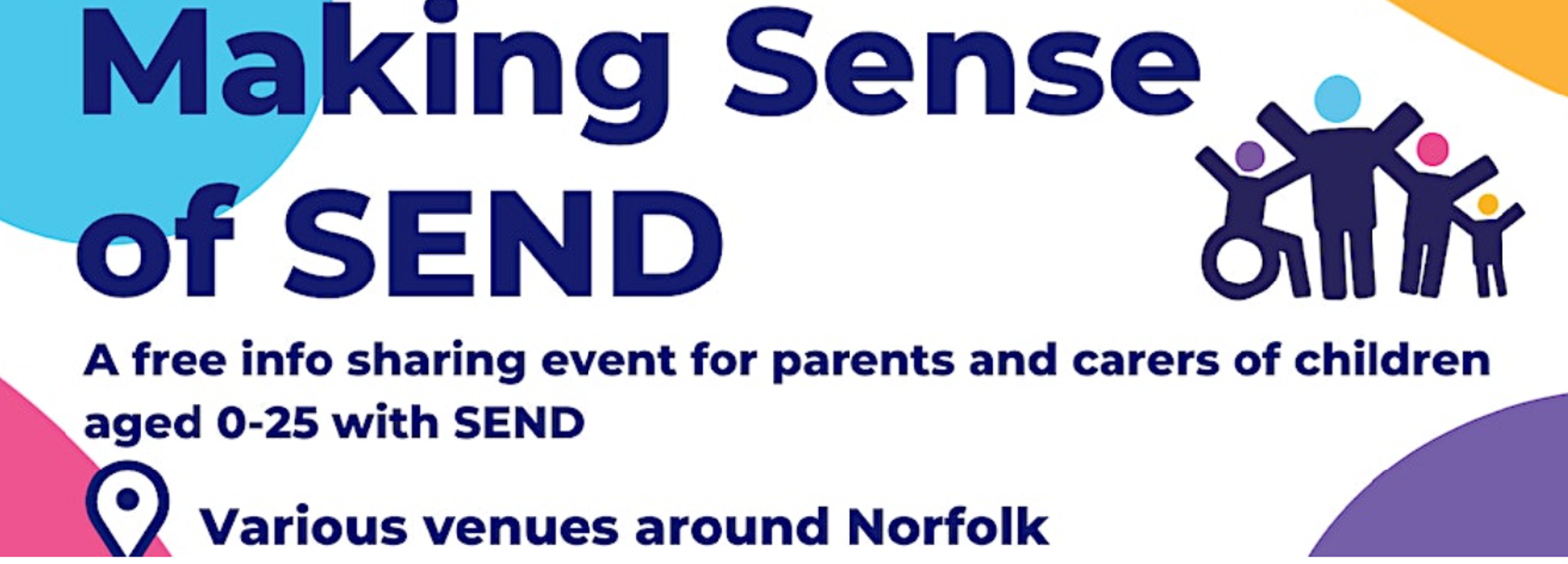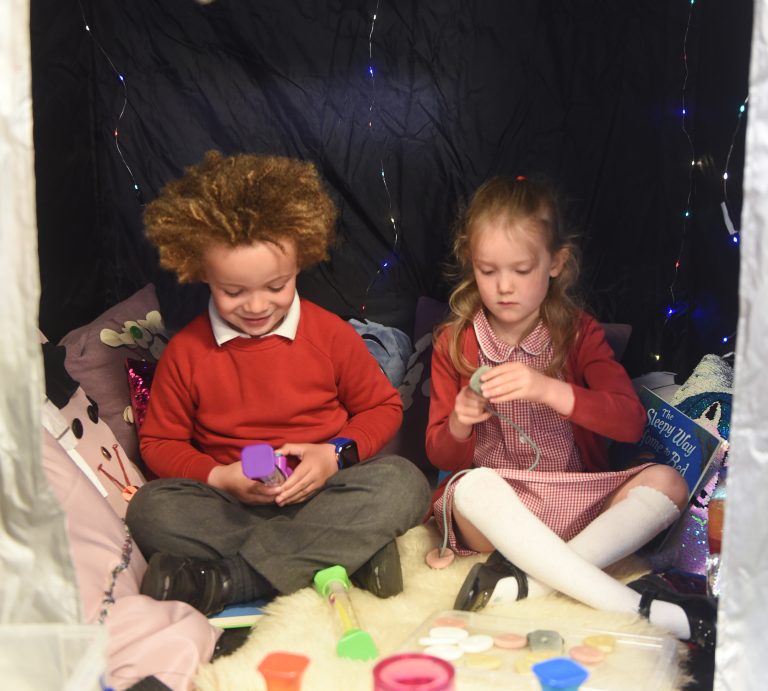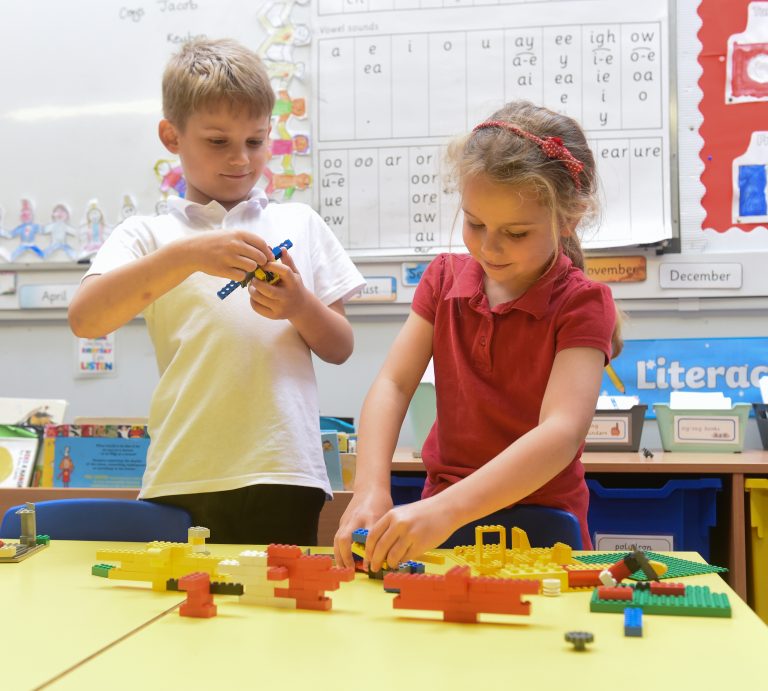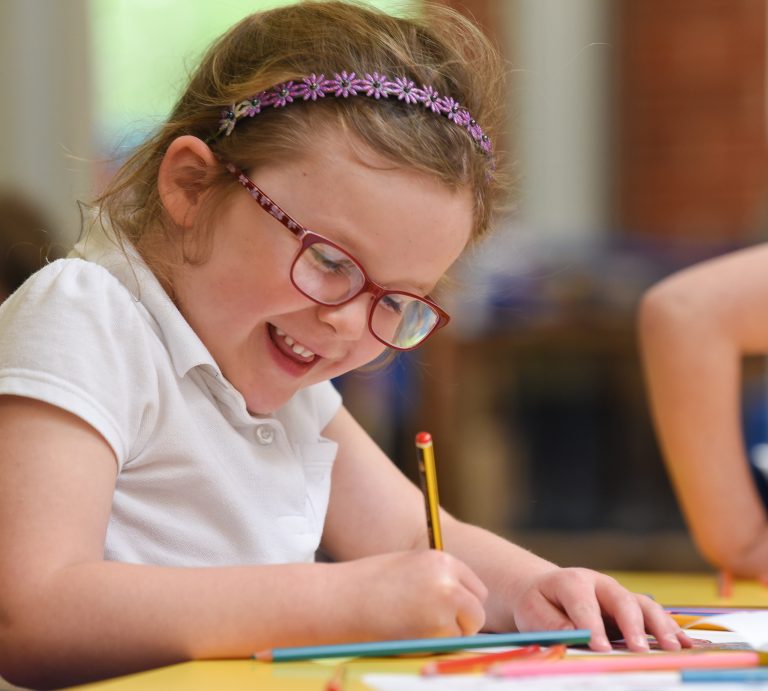Special Educational Needs (SEN)

Banham Primary School prides itself on its family feel. Staff ensure they hold a good knowledge of each individual child, valuing all equally and enabling children to feel included in all areas of school life. As a school, we strive to ensure all children are immersed in an accessible, broad and balanced curriculum where academia, social skills and emotional maturity are viewed as equal in providing grounding for the holistic needs of each child.
Special Educational NeedsContacts
Who should parents/carers contact if they have any suggestions, questions or concerns about their child?
- Their child’s class teacher is always the first person to approach
• Natasha Clarke – SENDCO and Trust Deputy Head
• Matthew Gamble – Headteacher
• Hannah Meek – Chair of Governors and SEND Governor
To speak to any of the people mentioned
Email: office@banham.cee.coop
Or call the main school line selecting option 2: 01953 887293
Special Educational Needs - SEN Information Report
What is an SEN Report?
A Special Educational Needs (SEN) report is information provided by a school regarding their provision and support for children and young people with special educational needs and disabilities (SEND). The information we are obliged to share in our report is set out in the Special Educational Needs and Disability Regulations 2014 Schedule 1. The Special Educational Needs and Disability Regulations 2014 (legislation.gov.uk)
Introduction
Thank you for taking the time to read our SEN information report, which we present as part of the Norfolk County Council Local Offer. Please click here for further information. SEND Local Offer – Norfolk County Council
Included in our report is the implementation of our policy for pupils with SEND. The information is set within the 2015 Code of Practice. SEND_Code_of_Practice_January_2015.pdf (publishing.service.gov.uk)
The SEN information report should be updated annually with any additional changes occurring during the year updated as soon as possible. This report was updated in September 2023.
We have published this on our website to be accessible for young people, their families or other professionals.
This website was audited on 13/12/2023 by Hannah Meek (SEND Governor and Natasha Clarke (SENCO).
Your Support
Along with our CARE ethos, we believe learning is for life. We always welcome any feedback, views or ideas which could help us with the consistent review of our offer.
Our Aims for All
- To have clear expectations for all children to reach their potential, e.g. physical, educational, social and emotional.
- To provide a learning environment supporting individual academic and developmental needs where we respond to children in ways which take account of their varied needs and life experience.
- To ensure access to the National Curriculum for all children, but with particular emphasis on the core subjects, by a range of teaching strategies and approaches.
- To ensure the early identification, assessment and appropriate intervention in order to create effective provision to improve the long term outcomes of children with SEND.
- To work in close partnership with parents/carers to enable them to participate fully in decisions and ensure that they are provided with relevant information and support where necessary.
- To support children to join in discussions and express their views enabling them to be involved in decisions that affect or impact them.
- To seek relevant, appropriate and informative advice and support from a variety of specialist agencies to enable us to provide the most effective targeted provision.
- To promote a close and positive working relationship with parents, pupils, local schools, social and health services and School Support Services bringing everybody together with the child’s voice at the centre.
- To ensure all staff feel they have the appropriate support, advice and training to allow them to adapt teaching and resources confidently to allow all to thrive.
For all of our children to have pride in a fully inclusive school, where prejudice and discrimination has been eliminated and they are able to feel safe and happy.
How do we view the definition of SEND?
| The 2015 SEN Code of Practice states that:
‘A child or young person has SEN if he or she has a learning difficulty or disability which calls for special educational provision to be made for them. A child of compulsory school age or a young person has a learning difficulty or disability if he or she:
Or
Many children and young people who have SEN may also have a disability under the Equality Act 2010 – that is ‘…a physical or mental impairment which has a long-term and substantial adverse effect on their ability to carry out normal day-to-day activities’. According to the SEN Code of Practice 2015, this definition provides a relatively low threshold and includes more children than many realise: ‘long-term’ is defined as ‘a year or more’ and ‘substantial’ is defined as ‘more than minor or trivial’. This definition includes sensory impairments such as those affecting sight or hearing, and long-term health conditions such as asthma, diabetes, epilepsy, and cancer. Children and young people with such conditions do not necessarily have SEN, but there is a significant overlap between children and young people who are disabled and those with SEN. Where a child with a disability or young person requires special educational provision they will also be covered by the SEN definition.
We hold the view that the SEND record is not always permanent and we aim for children to make significant progress through adapted provision. |
Identifying children’s additional needs
High quality teaching is used first and foremost but we understand that children can need additional and or different support in provision to make the best progress they can. Children who need provisions that are additional to, and or different from, the classroom practice, in order to overcome the barrier to learning, will be identified as having SEN.
Here at Banham, we consider the whole child and work closely with home to ensure we consider the external factors that can contribute to a child’s progression.
All of our pupils are assessed on entry to our Reception class, so we can build upon prior learning. Some children who join our school have already attended an early education setting. Liaison takes place between the pre-school group organiser and the Reception teacher to identify children with additional needs. We use this information to provide starting points for the development of an appropriate curriculum for all our children.
We accept the principle that pupils’ needs should be identified and met as early as possible. On-going observation, record keeping and assessment aid the class teacher in early identification of any problem. The parent/carers are informed at the earliest opportunity to alert them to concerns and enlist their active help and participation.
We may identify if a child has additional needs through:
- our knowledge of the children,
- information provided by parent/carers or the child,
- summative and formative assessments carried out by the class teacher, analysing of assessment on our data tracking system (Pupil Asset)
- classroom observations,
- where a child is making limited progress,
- a change in behaviour, attitude or attainment,
- information provided by other professionals, for example in Health or an early years settings/prior school,
- targeted interventions, schemes or programmes to address the area posing difficulty,
- monitoring work and individual progress over a period of time through pupil progress meetings,
- evaluation of impact from any adjustments made for the child,
- working as a team with the child, parent/carers and school to identify the child’s strengths and barriers to their learning and considering the best way to utilise these.
We encourage parents to approach their child’s class teacher at any time if they are worried about their child.
When initial concerns are raised teachers are asked to complete a cause for concern form. Here teachers and the SENCO reflect on the area of need that may be preventing the child from making expected progress. Careful consideration is given to:
- area of concern,
- barriers to learning,
- effective learning environment and resources,
- adaptations to the curriculum,
- alternative teaching strategies,
- securing motivation and concentration,
- parental support.
Adjustments and support are then carefully considered and the child’s progress is monitored for half a term. At the end of this time the progress is reflected upon and the following is decided upon:
- a) if the adjustments were effective and or successful – it becomes part of the class provision.
- b) if the adjustments and support need to be continued and monitored for an additional half term.
- c) if the child needs to be added to the SEN record.
If b or c are decided, parents will be invited in to talk to the class teacher and SENCo about next steps for their child to ensure a collective approach is applied. They are kept informed at all stages in the process of identification and assessment of needs. In this meeting, the planned support for their child will be discussed and they can obtain advice on how to help at home with any particular aspect of parenting, e.g. managing behaviour at home. Further assessments may involve a specialist such as the school’s Educational Psychologist or allocated Speech and Language Therapist. Parents/carers are given copies of any specialist assessment reports and can discuss them with the SENDCO.
Each child on our SEN record has their own Individual Learning Portfolio which is created with the child, teacher and parent/carer considering the child’s strengths and barriers to learning. This portfolio is shared with the parents and in collaboration targets are agreed and shared.
Each child has their own personalised target sheet where they can use self assessment and prompts from adults to mark of when they show evidence towards one of their targets.
We follow the principle of Judith Carter’s 7 C’s approach (more information is included later in the report) and adopt the following procedures for identification and assessment:
- the analysis of data including initial assessment in the Early Years, Foundation Stage Profile, entry profiles, and of key stage SATs, reading ages, teachers’ termly assessments
• Pupil Progress Meetings (termly)
• following up parental concerns
• tracking individual pupil progress over time
• liaison with previous schools/settings on transfer
• information from previous schools
• information from other services
The SENDCO maintains a record of pupils identified through the procedures listed. This SEN record is reviewed termly with teachers.
For some pupils a more in depth individual assessment may be undertaken by the school. This may take many forms e.g. a reading assessment, an observation of the child, working 1-1 on some aspect, a specific questionnaire.
For some pupils with a high level of need, an external agency will be involved in assessment and identification of individual need.
Why is it important to identify a need?
The purpose of identifying the area of need is to work out what action the school should take, rather than to fit a child into a category. It is often found that children’s needs do not fit neatly into one category or area and their needs can overlap significantly into several areas. These needs can also change over time.
The areas of difficulties are identified by the SEN Code of Practice 2015 as:
- Communication and Interaction (C&I)
- Cognition and Learning (C&L)
- Social, Emotional and Mental Health (SEMH)
- Physical and/or Sensory (PS)
It is also important take into account other factors that may impact on progress and attainment that are not considered SEN:
- Disability
- Attendance and punctuality
- Health and welfare e.g. bereavement, separation, illness.
- English as an additional language (EAL)
- Being in receipt of Pupil Premium funding (PP)
- Being a child who is looked after (LAC)
- Being a child of a parent in service.
Although not considered an SEN, it is vital to ensure we still allow for additional to or different provision to enable all children the equal opportunity they deserve to thrive and make progress.
Judith Carter’s 7 C’s
We have been incredibly lucky to work alongside an experienced Educational Psychologist Judith Carter to adapt her strengths-based framework on assessment and intervention to work for the children in our school. Part of our process is to involve the child in a self-assessment of their strengths in the areas of:
Cognition
Communication
Creativity
Control
Compassion
Coordination
Curriculum
This helps us to create a holistic assessment of skills and attributes that contribute to accessing our curriculum. We then use this information to plan intervention for our children who need additional too, or different from, a differentiated curriculum.
When the children complete our self-assessment it creates a unique progress tracker focusing on and building upon an individual’s strength. This also allows us to create entry and exit data for the different areas.
% of children identified as having SEND
% of children that have an EHCP
12.6%
2.9%
13%
4.3%
The table below shows only the primary need of each child. However, many children have a secondary need.
This data was a true representation at the time of publishing.
Cognition and Learning
Communication and Interaction
Social Emotional and Mental Health
Physical and or Sensory
69.2%
15.3%
7.6%
7.6%
What Specialist Support May Look Like. A few examples:
- Speech and Language – An NHS service, run by East Coast Community Health Care, working with individual children and providing feedback to parents and school.
- Educational Psychology (EP) – Educational Psychologists work with individual children, understanding assessments and then giving advice and support to parents and the school. They also provide training and advice for school staff. School commission the services of Willow Tree Learning.
- Access Through Technology (ATT) – A service commissioned by the local authority providing equipment such as laptops and iPads to support children with severe and complex communication difficulties who are currently involved with at least one health professional.
- Specialist Resource Base outreach and/or placement (SRB) – a service for learners with a high level of SEN who are educated in mainstream schools.
- Supporting Smiles previously Point 1 – Mental health support Supporting Smiles (previously Point 1) | Norfolk Community Directory
- Working on Worries – A therapist ran intervention for families. A member of staff trained and working with supervision to provide guidance, help and support for families on planning a stepped approach to worry and anxiety.
- Providing reports for GPs to refer to the Neuro Developmental Pathway/ Pediatricians/ OT/ physiotherapist/ CAMHS
Types of Intervention and Support
We try wherever possible to support pupils with learning difficulties through our regular whole-school systems. We aim to meet as many pupils’ needs, SEND or otherwise, through ‘Quality First Teaching’, through the implantation of personalisation and Assessment for Learning Principles.
- Examples of this may include but is not limited to:
• teachers differentiating work, working to meet individual needs and marking work and planning homework effectively.
• lessons have clear learning objectives, work is differentiated appropriately and assessment is used to inform the next step of learning.
• Children can receive their own personalised literacy targets and layered numeracy target.
• Differentiated teaching and small group work - Regular meetings with our mental health champion
- Use of computers, tablets and other electronic devices
- Provision to support learning (e.g. sound charts, colour overlays, visual prompts)
- Social stories
- Visual timetables
- Support for behaviour in line with our behaviour policy and individual behaviour plans if necessary
- Working with Worries
External support may be sought from:
- Chapel Green School – school-to-school support
- Educational Psychologists
- Solution- focussed approaches
- Support through short stay schools for Norfolk
- DOS – dyslexia outreach support service
- Core Consultation meetings
- Benjamin Foundation with time for you
- Inclusion Team
- OT – Ocupational Therapist
Our Before and After School club is utilised as a nurture-type setting for some children in need of social and emotional support.
Specialised Provision
Where necessary or appropriate, individualised adult support can be initiated. In this situation a 1-1 support system with a member of staff for specific sessions may be introduced or a targeted support worked.
On occasion, specific resources may be required, such as, hearing Loop systems, standing desks or weighted blankets.
Targeted advice for health needs is sort on an individual basis.
Grouping of pupils for specialised teaching groups through targeted intervention programmes.
NELI for EYFS/Year 1 children
Extended Monster Phonics interventions.
Sound Discovery for children with difficulties around phonics.
Access through technology for support with specific devices or programmes such as ‘talk to text’.
The school has wheelchair access for all areas e.g. toilet, ramps to main door and mobile, and disabled toilet facilities.
We also have access to the wider services universally provided by Norfolk County Council, described in the Local Offer.
The type of support is chosen with care and varies according to each child’s individual learning needs and is intended to enable access to learning and to overcome the barrier to learning that has been identified.
Additional support and interventions could include but are not limited:
- Anxiety Gremlin
- Talk Boost
- Personalised learning programmes
- Small group and individual support for maths, phonics and English
- Nessy spelling programme
- Individual behaviour plans
- Working memory support
- Sensory circuits
- Fine and gross motor interventions
Working with our schools across the trust we have developed an intervention index that allows staff to view interventions with a mind to the barrier to learning and the targeted outcome.
Assessment and Review
- SEN Record – Children who have been identified as having SEN and/or a disability are, with the agreement of the child’s parents/carers, recorded on the school’s SEND record. The record includes the child’s name, date of birth, barriers to learning and the agencies that are involved in their support. This record is kept to ensure that we can monitor the children’s progress effectively. We monitor and review the children’s needs regularly and as the child’s needs change it may mean that they no longer need to be on the record. If this is the case, then we speak to the child’s parents/carers about this.
- 7 C’s Learning Portfolio – Action Plan– An Individual Learning Plan is written and reviewed termly for children who have been identified as having SEN and/or a disability. The plan outlines areas of need and identifies how these needs will be met. Not every child identified as having SEN and/or a disability will need one of these plans and they are only written, where it is deemed relevant and meaningful.
- EHCP outcomes termly focus – for children with an EHCP, specific outcomes from their EHCP will be identified as the focus for each term.
- Provision Map – This identifies the provision offered to children who have been identified as having SEN and/or a disability. It is reviewed and updated termly.
- Intervention monitoring sheet – Some children who have been identified as having SEN and/or a disability will take part in small group and/or individual interventions. The progress the children make is monitored and the impact of the intervention is assessed.
All children who are added to our SEN record will be record on the INDES LA system
EHCP
The majority of children and young people who have SEN or disabilities will have their needs met within the school. A small percentage of children and young people with significant and/or complex needs may require an Education, Health and Care needs assessment. This is in order for the local authority to decide whether it is necessary for it to make provision in accordance with an EHC plan (EHCP). As identified in the SEN Code of Practice 2015, the purpose of an EHCP is to make special educational provision to meet the special educational needs of the child or young person, to secure the best possible outcome for them across education. It is a legal document that describes a child or a young person’s educational, health and social care needs.
For further information about Education, Health and Care Plans view this website:
Adaptations to the Curriculum and Learning Environment
Effective teaching for children with SEN starts with effective teaching for all children; every teacher is required to ensure access to learning for all children in their class. This is high quality teaching and is where the work is differentiated and suits the needs of all the children, it comes in the form of a lesson rather than an intervention programme.
Alongside the high quality teaching that your child will receive in lessons, there may also be a Teaching Assistant (TA) working with your child, whether individually or as part of a group, if this is seen as necessary by the class teacher. This means that children may be taken out of the classroom for these sessions, but they will continue to work on the same areas as the rest of the children at a level that is suitable for their needs which ensures that they can go back to class with a smooth transition.
As well as high quality teaching, our staff will also use a variety of adjustments and provisions in order to adapt access to the curriculum and meet the additional needs of the children in their class; these strategies might include:
- Visual timetables
- Practical resources to support learning and emotional development
- Social stories to support social, emotional and mental health issues
- Writing frames
- Use of ICT
- Positive behaviour reward system
- Teaching interventions led by Teaching Assistants (e.g. Nessy, Monster Phonics, NELI, sound discovery)
- Interventions for Social, Emotional and Mental Health Needs (e.g. Well Being Club, Working on Worries, Anxiety Gremlin, Lego Therapy, one of our lunch time clubs)
- Working with Worries
- Additional pre-teaching sessions to introduce less confident learners to new topics.
- Lunchtime support.
- External support, such as Speech and Language, Access Through Technology and EP visits.
Each child identified as having SEND is entitled to support that is ‘additional to or different from’ a normal differentiated curriculum. The type of support is dependent on individual needs and is intended to enable access to learning and overcome the identified barriers to learning.
Accessibility
Our school is an original Victorian building which has been extended and added to over time. We have five doors which are accessible to a person who uses a wheelchair by ramp or flat surface. Our breakfast and afterschool cub is accessible by ramp or steps.
We have an accessible toilet at the front of school.
We monitor school and site development to ensure that, within the resources available to use, all new equipment or buildings are accessible to all pupils, regardless of their needs.
Supporting Looked After Children with SEND
Personal Education Plans (PEPs) are competed termly with carers and social workers to ensure that the optimum support is put into place and funding is used to create maximum impact. Where a Looked After Child (LAC) is on the SEND record, their PER targets incorporate targets from their Learning Portfolio. The Head Teacher is the school’s Designated Teacher for Looked After Children and the Head Teacher or PSA attend all PEPs.
Parent Support Advisor
We are fortunate to benefit from our experienced Parents Support Advisor (PSA). She works alongside school staff to offer advice, help and support for all families. This could be contacting outside agencies, home visits, attending professional meetings if families wish to have the support, running Early Help Assessment Plans (EHAPs), helping with specific difficulties such as toileting, attendance or behaviour and much more!
All of our families are welcome and encouraged to speak with her.
She is contactable at: psa@cee.coop
For more information visit our PSA page on our website
Training
- The teaching and support staff have expertise and/or have received training in the following areas:
- implementing additional Literacy and Numeracy programmes
- Mental Health Champion – supporting children with Social, Emotional and Mental Health difficulties.
- training from the Norfolk County Council SEND team and Judith Carter (EP) on how to identify SEND need.
- training sessions and regular visits from the school EP to teaching staff on implementing adjustments and provisions to support children in class.
- training from specialists on working with children who present behaviours linked to specific diagnosis such as ASD.
- Norfolk Steps Training – Behaviour management techniques.
- working with children with Cerebral Palsy
- working with children with Global Developmental Delay
- working with children with Speech, Language and Communication needs
- working with children with Autistic Spectrum Disorder
- working with children with SpLD (dyslexia, dyspraxia and dyscalculia)
- working with children with Attachment Disorders
- Higher Level Teaching Assistants
- Bereavement
- Attachment disorders
- Working with children with Speech, Language and Communication needs, including Talk Boost training.
- The SENDCO also provides regular INSET for staff on aspects of SEND.
- In addition to some of the skill sets and expertise mentioned above.
- The SENCO holds the National award for SEN Coordination and attends network meetings termly to keep up to date with local and national issues in SEND.
- The SENCO is also an Alternate Designated Safeguarding Lead and receives annual training to keep up to date with this role.
- The SENCO works in unison with the three SENCOs across the trust to pool knowledge, expertise and resources.
- The SENCO has also carried out the role of moderator in the IMP process.
- The SENCO has training to use Q-Bec
A Child-Centred Approach
- We recognise that all children have the right to be involved in making decisions and exercising choice. Where appropriate, all children are involved in deciding, monitoring and reviewing their progress and the support they receive:
- Three times a year children work with their teacher or SENCO to complete a strengths-based self-evaluation where we can monitor progress.
- Children who take part in interventions are asked for feedback as part of the measure of the effectiveness of the intervention.
- As part of the Learning Portfolios we encourage children to think about their future goals and adult life and what they can do to achieve this.
- Learning Portfolios are designed to echo the child’s voice and gather evidence of their view on their learning and themselves.
- Children are asked to review their progress against their targets in their Learning Portfolio.
- Children have a target sheet which allows them to monitor their own personalised targets and mark off as they reach them.
- An annual questionnaire is going to be carried out to gather the children’s view of their school experience.
- Completing Wishes and Feelings where appropriate.
- Attending termly reviews for their Learning Portfolios.
- Attending annual review for Education, Health and Care Plans.
Mental Health
Here at Banham we take the emotional and mental health of our students and staff as a paramount starting point. Mrs Travis is our mental health champion who shares her training with the staff at regular and informal points throughout the year. She also holds a mental health check in club for children to chat openly with her. Mrs Thomas runs a weekly ‘Well Being Club’.
Once a week children can attend clubs such as colouring, lego or puzzle club with activities to encourage resilience and mindfulness. Sensory breaks can be offered to children and the sensory tent allows a space for children to self regulate and a calm space to be.
Support for Families - SENDIAS
Norfolk SENDIASS (Special Educational Needs and Disabilities Information, Advice and Support Service) SENDIASS offer information, advice and support to children, young people and parents/carers about special educational needs and disabilities (SEND). This includes health and social care where it is linked to education. They are a free, dedicated, confidential and impartial service based in Norwich. Staff are independently trained in SEND.
Norfolk SEND Partnership Home Page (norfolksendiass.org.uk)
01603 704070
Information, Advice, Support Service - IASS
IASS is a support service for young people 25 and under. They can seek advice and support on a range of areas.
Home – IASS (iassnetwork.org.uk)
Information, Advice and Support Services Network
Council for Disabled Children
115 Mare Street, London, E8 4RU
Email: iassn@ncb.org.uk
Arrangements for Supporting Children in a New Setting
We recognise that ‘moving on’ and changes can be difficult for any child but particularly for a child with SEND and take steps to ensure that any transition is as smooth as possible.
If your child is starting in Reception, we will:
- Arrange a meeting with preschools, nurseries and/or childminders to make a transition plan.
- Arrange open mornings for Nursery and Reception intake.
- Provide photographs or a booklet about the school if appropriate.
If your child is moving to another school, we will:
- Contact the new school’s SENCO to pass on any special arrangements or support that need to be made for your child.
- Make sure that all records about your child are passed on as soon as possible.
- Arrange visits to the new school with a member of staff if the child wishes.
- Arrange transition visits over an extended period of time as needed. If your child is moving class, we will:
- Arrange a transition meeting between the current and new class teacher to discuss the adjustments and provision provided for your child in their current class.
- Hand over all information and relevant documents to the new class teacher.
- Provide photographs or a booklet about the school if appropriate.
- Give the children the opportunity to meet their new teacher and spend a morning with them in their new class in the summer term.
If your child is moving to high school, we will:
- Invite staff from the high schools into school to meet the children.
- Facilitate taster days at the local high schools, with additional transition days arranged for children with SEND if needed.
- Complete the transition paperwork identifying the children who will be attending the high school who have SEND.
- Contact the high school’s SENCO to pass on any special arrangements or support that need to be made for your child.
Feedback or Complaints
We are always seeking to improve on the quality of education we provide for all of our children and we are keen to hear from parents and carers about their child’s experience.
Compliments and feedback are always greatly received and can be passed on directly to the member of staff, sent via Class Dojo, formally recorded via our regular questionnaires to parents/carers, or in an email or letter to the Head Teacher.
Should you have any concerns or complaints about provision for your child, then you should first arrange to speak to the class teacher, this can be done in person, by phone, via Class Dojo or by email. If you then feel that the matter has not been resolved, then please contact either Natasha Clarke (SENCO) or Matthew Gamble (Head teacher). This can be done in person, by phone, via Class Dojo or by email. If you feel that your concerns or complaint has not be resolved they should follow the school complaint procedure, available from the school office and here on the website.
If you are a parent/carer of a child with disabilities, then you have the right to make disability discrimination claims to the first-tier SEND tribunal if you believe that our school has discriminated against your children. Claims about alleged discrimination regarding can include:
- Exclusions
- Provision of education and associated services
- Making reasonable adjustments, including the provision of auxiliary aids and services.
Our door is always open so please speak to us.
Funding
The Head teacher/SENCO regularly reviews how to use funds. The Head teacher informs the Governing Body of how the funding allocated to support special educational needs has been employed.
Funding comes from three sources:
- The school’s core budget – this is used to make general provision for all pupils in the school including pupils with SEN.
- The notional SEN budget – in addition to the school’s core budget, every school receives an additional amount of money to make special educational provision to meet the needs of pupils with SEN. The government has recommended that schools should use this notional SEN budget to pay for up to £6000 worth of special educational provision to meet the needs of a pupil with SEN. Most pupils with SEN need provision that comes to less than £6000 worth of special educational provision.
- High need funding – if a pupil requires more than the £6000 worth of special educational provision, the school can ask the local authority to provide higher need funding. This is accessed via a banding system for children with an EHCP or application for those without.
The school follow the requirements laid out by the LA and complete an INDES and IPSEF to ensure our funding as accounted for.
To view our funding breakdown please follow this link inserting Banham Community Primary School.
Childrens Services ICT Solutions (norfolk.gov.uk)
Funding for financial year 2021-2022: £24,834
SEND Policies
Careful consideration is given to each policy. Our SEN policy has our child-centred approach at its heart where we aim to provide an educational environment for all to succeed.
Events
SEND at Banham Primary School
We want to make the information we provide clear for all. Here is our SEND handout to pick out some key points of SEND provision at Banham Primary School.
What Do some of the Abbreviations Mean?
- ADHD – Attention Deficit Hyperactivity Disorder
- ADD – Attention Deficit Disorder
- ASD – Autistic Spectrum Disorder
- ATT – Access Through Technology
- CAMHS – Child and Adolescent Mental Health Service
- CI – Communication and Interaction.
- CL – Cognition and Learning.
- EAL – English as an Additional Language
- EHAP – Early Help Assessment and Plan (previously Family Support Plan FSP)
- EHCP – Educational Health and Care Plan
- EP – Educational Psychologist
- GP – General Practitioner
- ILP – Individual Learning Plan
- IMP – INDES Moderation Panel
- INDES – Identification of Needs Descriptor in Educational Settings
- IPSEF – Inclusion Provision Self Evaluation Form
- LA – Local Authority
- LAC – Looked After Child
- OT – Occupational Therapist
- PEaSS – Provision Expected at SEN Support
- PEP – Personal Education Plan (for looked after children)
- PS – Sensory and/or Physical Needs.
- PSA – Parent Support Advisor
- PSHE – Personal, Social, Health Education
- SALT – Speech and Language Therapy
- SEMH – Social, Emotional and Mental Health Difficulties.
- SEN – Special Educational Needs
- SEN Code of Practice – The document that sets out the legal requirements for SEND
- SEND – Special, Educational Needs and Disabilities
- SENDCo – Special Educational Needs and Disability Coordinator
- SRB – Specialist Resource Base
- TA – Teaching Assistant

